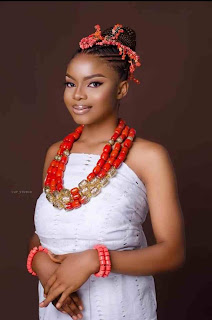Top 21 Moral Values Enuani Parents Inculcated in their Children Before the Dawn of Westernization and the Lessons
Top 21 Moral Values Enuani Parents Inculcated in their Children Before the Dawn of Westernization and the Lessons
- Emeka Esogbue
Three distinct units make up the Anioma Region of today and they are Enuani Nation, Ika Nation, and Ndokwa Nation.
The Enuani Nation, the topic of this discourse comprises the communities of Asaba, Ibusa, Ebu Ogwashi-Uku, Issele-Uku, Isheagu, Onicha-Olona, Ubulu-Uku, Obomkpa, Okpanam, Oko, Ewulu, Ejeme-Unor, Ugbodu, Idumuje-Unor, Ezi and others too numerous to mention here.
These people in the unknowable era, adhered to common moral lessons in raising their children which instilled the consciousness of what is right and wrong in their society.
These moral lessons were more commonly practised until Western civilization crept in with erosion
Some of these lessons were also common with other climes though.
The Moral Lessons
1. Early in life, the parents especially mothers kept screaming to the child, 'imakwa na nwanyi ka ibu?' This rhetorical question helped to remind the girl-child in the society of the Enuani Nation that they were women who should reflect it as such in their attitudes.
2. The girl-child was taught how to fold her legs to cover herself when sitting down, especially in public places. This helped to enthrone dignity.
3. When adults are discussing, a child was not expected to engage in the topic unless invited. It helped to create listening skills.
4. Children waited for their parents to finish talking before interfering in discussions. It created respect.
5. The use of lewd words was not to be heard from children. It kept the child away from lascivity.
6. When a child is eating, he should not engage in discussions. Dining etiquette was instilled.
7. A child might refuse a message but not a call. The lesson of paying attention to issues was instilled.
8. A child never called her parents by name. It was highly forbidden. There was respect for elders.
9. A child finished eating his food before eating the fish or meat or it amounted to 'usia,' meaning greed.
10. If children visited another family and found them eating, they would leave temporarily to return after their meal. Gluttony was avoided in the society.
11. A child was to listen intently to their elders before making input. In other words, children were not expected to talk back at elders. Listening skills mattered.
12. It was highly forbidden for an Enuani child to employ cursing or profane words to relate with his elders. The Enuani Nation expected discipline.
13. All children that grew up in typical Enuani homes heard of "anya ukwu," which literary means "big eye" or "greed." Children were trained to be content with what they had. Fraudulent practices were forbidden.
14. Children were not expected to bring home what did not belong to them. The Enuani Nation discouraged theft.
15. A mother's food satisfied her children. The Enuani children must be satisfied at all times.
16. Enuani children were trained not to tell lies. The typical Enuani parent believed that any child who told lies would equally steal. Hence, telling lies was severely discouraged among children. Honesty and integrity promoted family virtues in the Enuani Nation.
17. Acknowledgment of seniority is based on age and was diligently adhered to by parents in raising their children. Parents handed food, pieces of meat, fish, etc to their children on a seniority basis. The younger ones must show respect to the elderly ones.
18. Younger children were trained not to be the first to hit their seniors. The Igbuzo aphorism for this is 'iji aka nta ha ta aka ukwu.' This translates to using the smaller hand to choose the bigger hand. This aspect of traditional training aided respect for seniority in society.
19. The typical Enuani parent shared the commonality of their children feeding together from the same plate which in their view was a way to instill love and togetherness in them. There must be love and unity in the family and by extension, the society.
20. Children never mentioned their parents or elders by name. This promoted respect for elders.
21. The Enuani society encouraged any available elder to discipline a child where he errs. This was so because society believed in 'nwa bu nwa oha ncha,' which meant that a child belonged to the entire society because he could either be a blessing or terror to the society depending on the training given to him while growing up.

Comments
Post a Comment